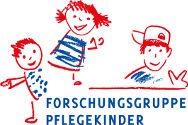João M. S. Carvalho, CICS.NOVA, Instituto Universitário da Maia, Portugal / Paulo Delgado, InED, Escola Superior de Educação do Porto, CIEC - Universidade do Minho, Portugal / / Vânia S. Pinto, InED, REES Centre, Department of Education, University of Oxford, UK
| Presentation as PDF Download |
Abstract:
|
| This study aims to understand how Portuguese students, in scientific areas related with the professions involved in decision-making process, decide in the presence of a practical case of a child suspected of being victim of violence. It was applied a questionnaire vignette, that had 4 slightly different versions, to 200 students, who were asked to decide whether the child should or not be removed from her biological family, and whether or not to be reunited two years after the first decision. Among the key findings, based in a quantitative analysis, it can be highlighted that the students recognised that the child was at risk of suffering significant physical and emotional harm, but decided, mostly in favour of an intervention with the biological family, avoiding the removal. After two years and following a reassessment of the case, the students’ majority considered that the child should remained with the foster family, rather than returning to the birth family. It can be noted with statistical significance, that these decisions were influenced, the first one by the removal agreement or disagreement of the mother and, the second by the child’s desire or not of being reunified with the birth family. It is known that cultural and educational variables influence the subjective decisions of childcare system and of the courts of law. This study shows that students have a great diversity in case assessment and decision, and should study more in the basis of practical cases, in order to improve and sharp their perspective in the analysis of real cases as future professionals in the area. Keywords: Welfare services; Child abuse; Risk assessment; Decision making; Foster care. |
